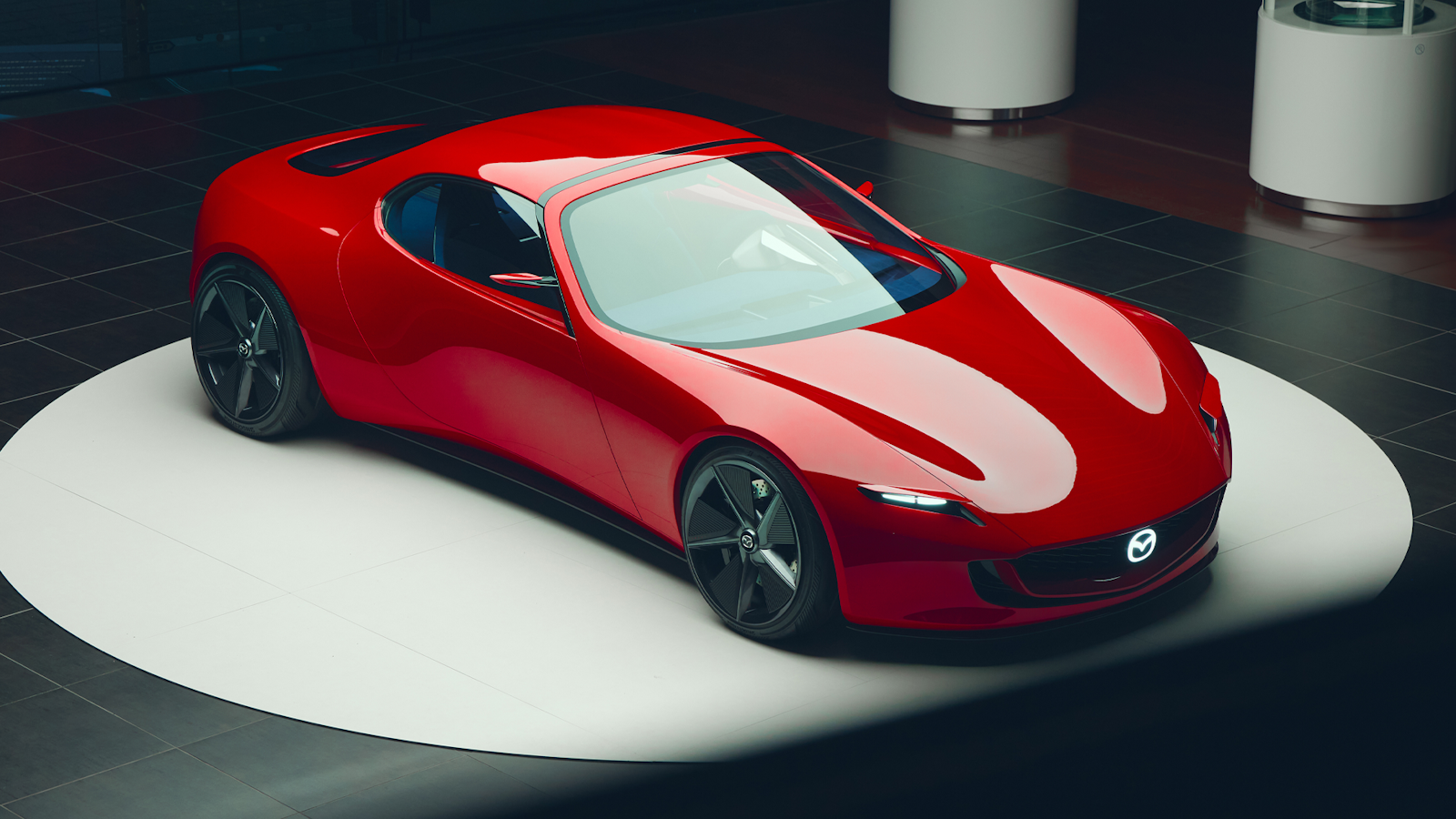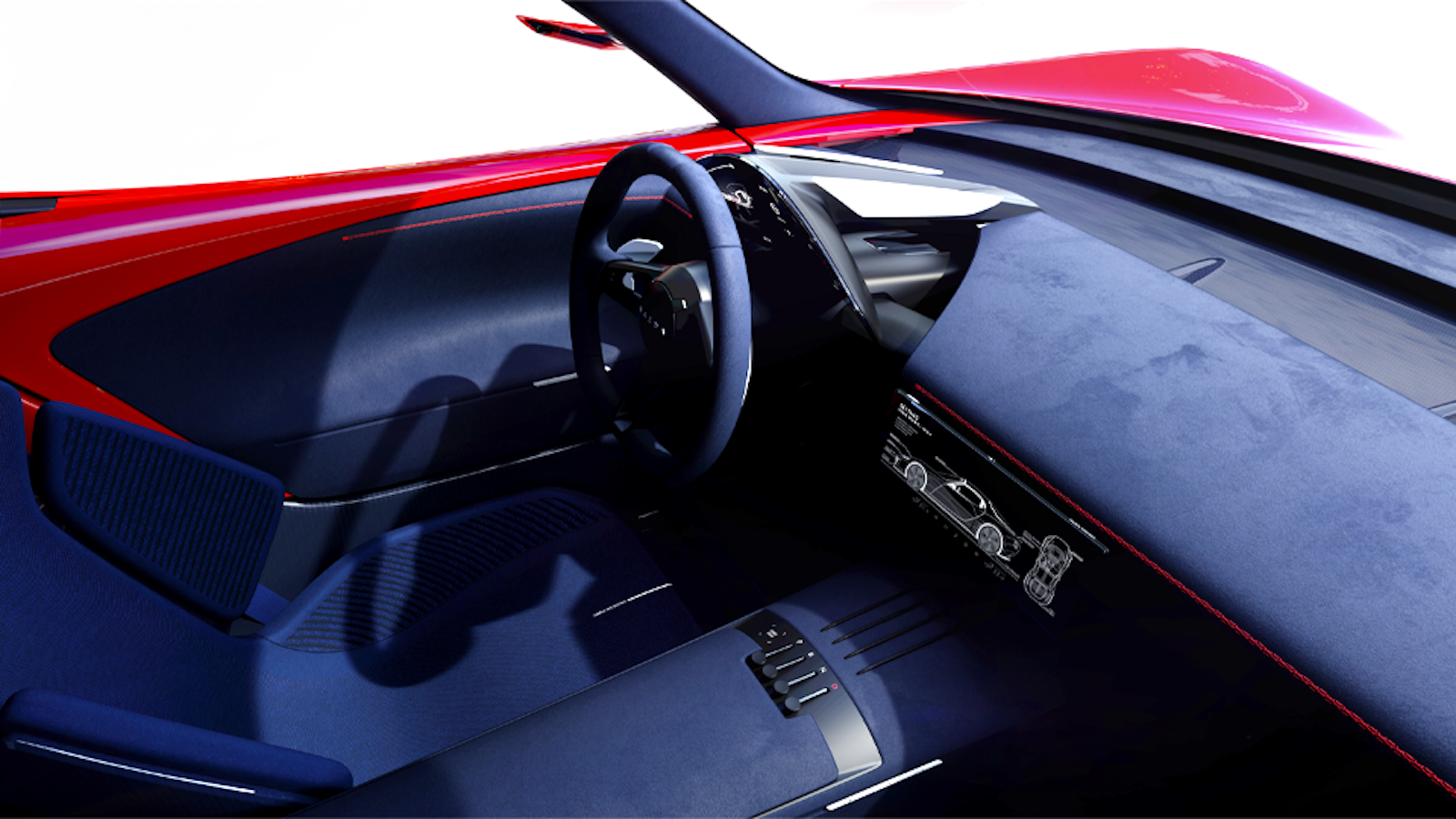Car changing is a big deal
This is the Mazda Iconic SP concept, and it’s a rotary-engined sports car which could be coming to a b-road near you in the next few years.
- New Mazda Iconic SP concept coming soon
- A return for the rotary-engined sports car…
- …But it will be a range-extending EV
- Weighs 1,450hp and has 370hp
- Eco-friendly interior materials
- Production version to follow in the next few years
The Mazda Iconic SP concept marks the comeback of the rotary-engined sports car for the first time since the RX-8 went off sale in 2012, and a production version is set to follow “in the not too distant future”. Rumour has it that this could be as soon as 2026.
The enthusiasts amongst you may be looking forward to a new rotary coupe from Mazda, but before you get too carried away there’s something you should know. This is actually an EV, with the engine acting as a generator to charge the batteries.
New Mazda Iconic SP concept engine and performance
Mazda hasn’t made a rotary-engined sports car for 12 years, but the new Iconic SP is packing a dual-rotor motor. You can learn more about what a rotary engine is in our handy guide, but in short it’s an engine which doesn’t use traditional pistons which go up and down, instead using a triangular rotor which spins inside one large cylinder.

Enthusiasts love the rotary engine for its high-revving nature and unique soundtrack, but the Iconic SP is actually an EV which uses the engine as a generator to charge the batteries – just like the Mazda MX-30 REV.

Mazda says this is an ideal application for the rotary engine because of its compact dimensions which allow it to be mounted low down in the car, reducing the centre of gravity. It can also run on carbon-neutral fuels such as synthetic and biofuels, while still providing impressive amounts of power.
The Iconic SP has 370hp, 140hp more than the old RX-8 and putting it in the same ballpark as the 2.0-litre Lotus Emira. It also tips the scales at 1,450kg which is almost exactly the same as the Emira.
New Mazda Iconic SP design
Modern roads are filled with anonymous-looking SUVs, so a slinky sports car like the Mazda Iconic SP is a breath of fresh air for car enthusiasts.

The long, sloped bonnet and haunched wings make it look like a true sports car, and those slim pop-up headlights ape those found on the RX-7. As cool as they are, you can expect these to change for production. Pop-ups were phased out back in the 90s because of pedestrian safety regulations. The lack of fake grilles gives this car a sleek, clean look up front.

The Iconic SP also has a pretty traditional side profile thanks to the stubby rear end and wheel-at-each-corner stance. It has some Aston Martin-esque doors as well which open upwards, and there are some chunky side skirts.

When you look at this car from the rear, you can see the flared rear arches which help make the car look more muscular. The tail lights also have a simple, round design which make it look almost Ferrari-ish.
New Mazda Iconic SP interior
The cabin of the new Mazda Iconic SP has an equally minimalist design as the exterior, helping keep things looking driver-focussed. A lot of the fabrics are made using plant-based dyes and fibres, and there are even some materials made using oyster shells.

You have a sporty-looking three-spoke steering wheel, a simple driver’s display and a central infotainment screen to control most of the car’s functions. There’s also some body-coloured flashes across the doors, and the whole cabin is trimmed in a posh suede material.
When can I buy the new Mazda Iconic SP?
You won’t be able to buy the Mazda Iconic SP in its current state because it’s just a concept car, however Mazda has promised a production version very similar to this within the next few years.

Masashi Nakayama, General Manager of Mazda’s Design Division recently reiterated his commitment to launching this sports car. He said: “This concept is not just one of those empty show cars. It’s been designed with real intent to turn it into a production model in the not-so-distant future.”
Looking for an easy way to change your car? Then Carwow is the place to go. You can sell your old car for a great price, and get the best deals on a new one. All through our network of trusted dealers and all from the comfort of your home. Tap the button below to get started today.